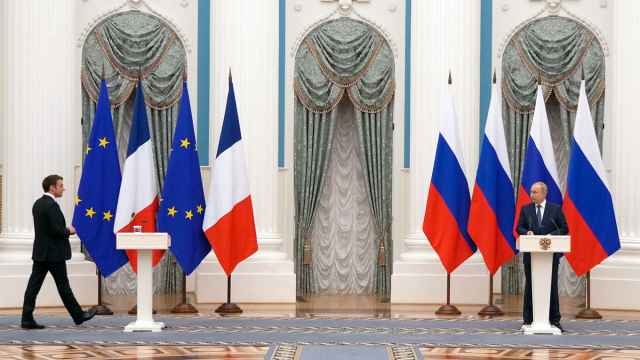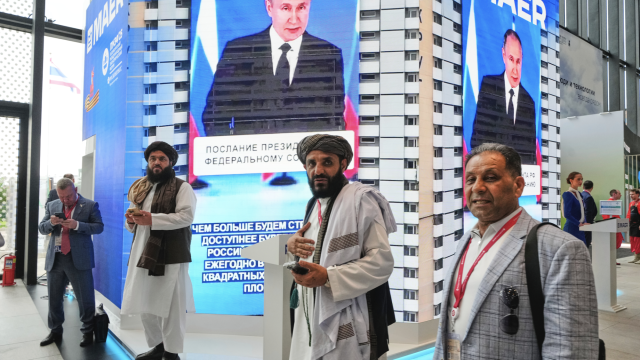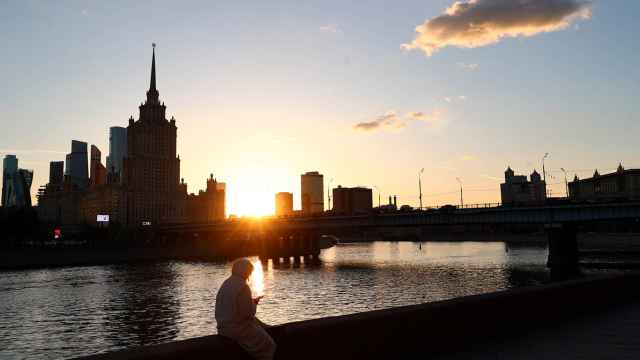While fastening my seatbelt on a plane to Sochi, with the pilot announcing that he would be getting us there in two hours and that it is 30 degrees Celsius warmer there than in Moscow, I couldn't help but hear a Beach Boys song in my head, with the sea, palm trees and festive Olympic Sochi feeling so close.
What I did not expect was that I would have to overcome a number of obstacles in order to reach the $51 billion paradise created by the Russian government on the shores of the Black Sea.
Athletes, officials and spectators will be taking many different routes to get to Sochi for the Olympics, but probably the most-traveled path will be on an airplane via Moscow. There are only a handful of direct flights to Sochi from cities outside Russia, and land travel to the resort is limited.
Given the significant security concerns ahead of the Games, I figured that Domodedovo Airport would prove even more of a gauntlet than usual.
Before leaving my apartment in Moscow, I took seriously the new rule that no liquids can be taken onboard flights in Russia until the end of the Olympics because of possible terrorist threats. So I packed my bag wisely and arrived at the airport earlier than usual, expecting to see people at the security checkpoint, waiting for permits to take on baby food and medicine.
At the check-in desk, an airline employee asked me if I had any lipstick in my handbag, saying that I needed to put it in my checked luggage.
I did so, then went to the security checkpoint, passing through it successfully and unexpectedly fast, with no one asking me to open my bag or, as usually happens, take out my laptop. Imagine my surprise when I opened my bag once on the plane and seeing that I had forgotten to throw away a bottle of water and a drinkable yogurt.
It turns out that you can take liquids onboard, by accident anyway, and in even greater quantities than are usually allowed.
Before getting on the plane, I noticed that I would be traveling with a Japanese delegation that included Japan Olympic Committee representatives and athletes.
"We have been to Sochi twice already — I think the Russian government did a great job, building such infrastructure there," said Hiroshi Takeuchi, spokesman for the Japanese Olympic Team, while waiting for boarding to start. "It will serve many, many future generations."
I noticed several people in gaudy official Sochi Olympic jackets walking around the airport. They turned out to be volunteers whose job it was to help the official delegations and Olympic visitors flying to Sochi via Moscow.
One of them, Oleg Zhuravlyov, was standing near my gate and looking contemplatively out the window at the airplanes.
"Unfortunately, I will not be going to Sochi, which is a pity of course, but my duty is to be here for the Olympics," he said. "All the technical personnel have already flown to Sochi, now it is time for the official delegations — we are helping them with any questions. So we need to speak several languages. There you see the Japanese delegation, usually Japanese people do not speak any language but Japanese."
But when I asked whether he spoke Japanese, he said no.
Along with the Japanese delegation, plenty of "ordinary" people were on my flight as well. Sitting through a 30-minute delay before takeoff — because of, the pilot said, some problems with the luggage — I spoke to a young couple sitting next to me, Konstantin and Tatyana from Moscow.
"We are going to Sochi for four days, just to look around, to hang out there a little bit," Konstantin said.
Tatyana said that her sister worked for the Organizing Committee and that she had invited them to a rehearsal of the opening ceremony. She said everyone at the committee was given a few tickets to the event.
But they would be leaving Sochi on the eve of the actual opening ceremony, partly because of the cost of staying for the Games, Konstantin said. "Both the tickets and living costs are expensive," he said.
His wife added: "I am also worried about all the security personnel. It is not that I think it will be unsafe there, I just think we will feel uncomfortable because of the tough security measures."
"But we are happy to be a part of the Olympics in some way," she said.
The flight was full, in fact so full that there were not enough hot lunches for some passengers, including me. But the real problems began upon my arrival to Sochi.
The Adler airport looked small and empty compared with Domodedovo, where crowds of young people ran around carrying snowboards and skis.
It seemed as though the only people in the Adler airport outside Sochi were volunteers, athletes arriving from various countries, and reporters waiting for the athletes.
Only one luggage carousel was working. Our luggage started to appear: loads and loads of Japanese Olympic team suitcases, but not the bags of other passengers. Some of the Japanese team's bags did not arrive either.
After an hour of waiting, people started to get worried. No announcement was made about luggage delays and people bombarded airport personnel with questions.
"The other bags did not fit onto your plane — they will arrive on other flights," an airport employee said.
I thought: I will have to live in Sochi for a month without a thing to my name.
I walked out of the airport and felt the smell of the sea and the subtropical trees. "It is weird, huh?" said Bene Mayr, a skier from Germany, looking at the palm trees around the airport.
"Do you think it is cold up there?" he said, motioning to the Caucasus Mountains in the distance.
The next day, I was woken up by a phone call from the airport. "Your bag has arrived," a voice said.
A Message from The Moscow Times:
Dear readers,
We are facing unprecedented challenges. Russia's Prosecutor General's Office has designated The Moscow Times as an "undesirable" organization, criminalizing our work and putting our staff at risk of prosecution. This follows our earlier unjust labeling as a "foreign agent."
These actions are direct attempts to silence independent journalism in Russia. The authorities claim our work "discredits the decisions of the Russian leadership." We see things differently: we strive to provide accurate, unbiased reporting on Russia.
We, the journalists of The Moscow Times, refuse to be silenced. But to continue our work, we need your help.
Your support, no matter how small, makes a world of difference. If you can, please support us monthly starting from just $2. It's quick to set up, and every contribution makes a significant impact.
By supporting The Moscow Times, you're defending open, independent journalism in the face of repression. Thank you for standing with us.
Remind me later.





